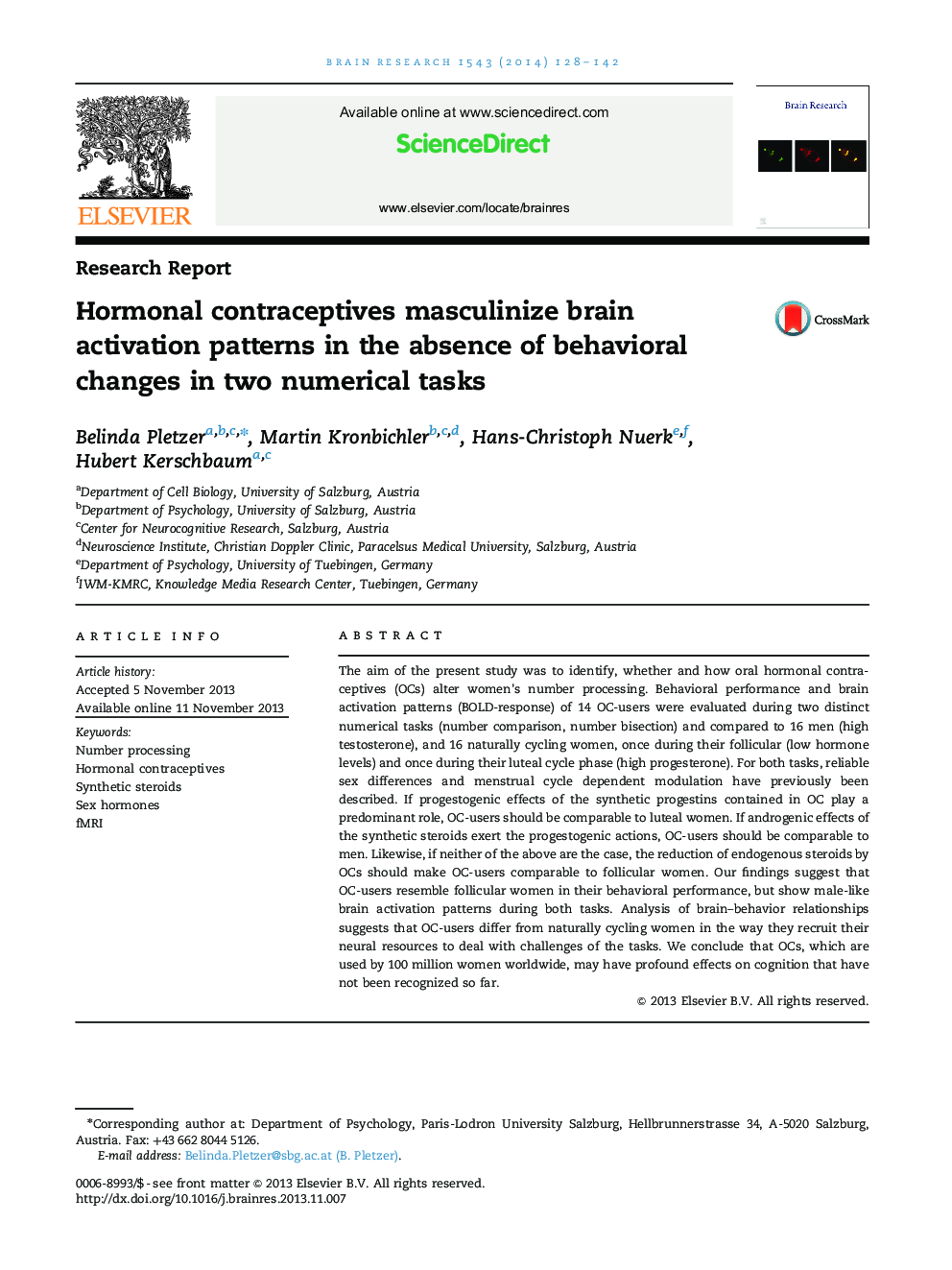| Article ID | Journal | Published Year | Pages | File Type |
|---|---|---|---|---|
| 6263441 | Brain Research | 2014 | 15 Pages |
â¢Oral contraceptive (OC) users are comparable to men in their brain activation patterns.â¢OC-users are comparable to naturally cycling women in their behavioral performance.â¢The pattern of results was consistent across two distinct numerical tasks.
The aim of the present study was to identify, whether and how oral hormonal contraceptives (OCs) alter women's number processing. Behavioral performance and brain activation patterns (BOLD-response) of 14 OC-users were evaluated during two distinct numerical tasks (number comparison, number bisection) and compared to 16 men (high testosterone), and 16 naturally cycling women, once during their follicular (low hormone levels) and once during their luteal cycle phase (high progesterone). For both tasks, reliable sex differences and menstrual cycle dependent modulation have previously been described. If progestogenic effects of the synthetic progestins contained in OC play a predominant role, OC-users should be comparable to luteal women. If androgenic effects of the synthetic steroids exert the progestogenic actions, OC-users should be comparable to men. Likewise, if neither of the above are the case, the reduction of endogenous steroids by OCs should make OC-users comparable to follicular women. Our findings suggest that OC-users resemble follicular women in their behavioral performance, but show male-like brain activation patterns during both tasks. Analysis of brain-behavior relationships suggests that OC-users differ from naturally cycling women in the way they recruit their neural resources to deal with challenges of the tasks. We conclude that OCs, which are used by 100 million women worldwide, may have profound effects on cognition that have not been recognized so far.
